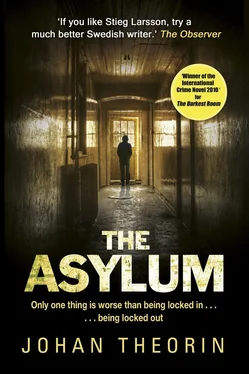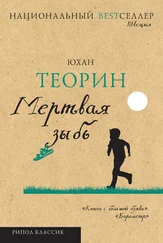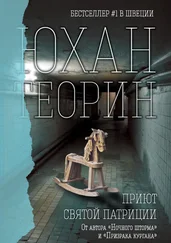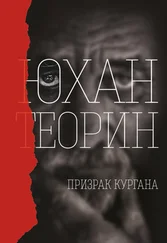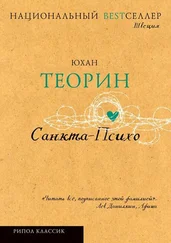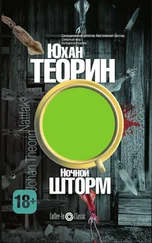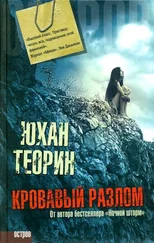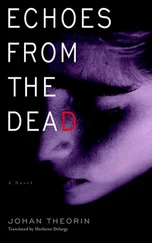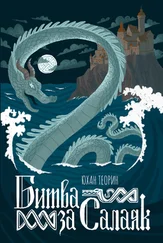Eventually Andreas leaves; the sun is low on the horizon. Jan is now solely responsible for the Dell.
But everything will be fine; he will take good care of the children.
First of all he gathers them together in the playroom. ‘What would you like to do?’
‘Play!’ says Mira.
‘And what would you like to play?’
‘Safari parks!’ Matilda shouts, pointing. ‘Like over there!’
Jan doesn’t understand until he grasps that she is pointing at the window and the fence outside. ‘That’s not a safari park,’ he says.
‘Oh yes it is!’ Matilda says firmly.
She doesn’t seem to connect her visits to the hospital with the high fence, and Jan decides not to tell her that there is a link.
The most important duties during the evening shift are to serve the evening meal, make sure the children brush their teeth, and put them to bed. So Jan makes cheese sandwiches for Matilda, Leo and Mira, gets out their pyjamas and asks them to get changed. It is pitch dark outside by now; the time is half past seven. All three children are quite tired, and they scramble into their little beds in the snuggle room without protest. He reads them a bedtime story about a hippopotamus who changes places with an ordinary man and finds himself looking after the man’s little girl, then Jan gets to his feet. ‘Goodnight everyone... See you in the morning.’
He can hear suppressed giggles once he has switched off the light. He waits for a moment, wondering whether to say something, but soon everything goes quiet.
Another evening duty is to air the building, so at eight o’clock he gently closes the door of the children’s bedroom and opens the other windows wide, letting the cold evening air rush in.
Jan can hear music coming from outside, but it is not the thump of a disco beat from some party — rather the gentle, slightly melancholy sound of an old Swedish pop classic. It is coming through the window at the back of the pre-school, and when he looks out he can see a glowing dot in the shadows down below St Patricia’s. The dot is moving up and down — someone is standing outside the hospital, smoking and listening to the radio.
The hospital is not full of bellowing lunatics , Dr Högsmed had said. The patients are often calm and completely capable of interaction .
Is the smoker a patient or a nurse? Jan can’t tell in the darkness.
He closes the windows. What can he do now? He goes into the playroom to have a look through the book boxes. Josefine had taken The Animal Lady from the middle of the box on the left; Jan kneels down beside it.
The Animal Lady has provided him with a task. This morning he completed the drawings on three more pages. When it is finished he will put it back in the box — but he wonders if there are any more handmade books in there.
Slowly he goes through each box, past Pippi Longstocking and Grimms’ Fairy Tales . Right at the back he finds more thin books that look handmade; there is no author’s name on them. Jan pulls out three and reads the titles: The Princess with a Hundred Hands, The Witch Who Was Poorly and Viveca’s House of Stone .
He slowly turns the pages in each book, one by one, and sees that these too are handwritten, illustrated here and there with pencil sketches. Just like The Animal Lady , all of them seem to be sad tales about lonely people. The Princess with a Hundred Hands is about Princess Blanka, whose palace has sunk down into a bog. Blanka has managed to reach safety in one of the towers, but she has no control over anything except the hands of other people; she has to get them to do things for her.
The main character in The Witch Who Was Poorly is a sorceress sitting in her cottage deep in the forest, no longer able to cast her spells.
And the third book is about an old woman who wakes up alone in a big, dusty house, with no memory of how she got there.
Jan closes the books and puts them in his bag.
An hour later Marie-Louise arrives.
‘Good evening, Jan!’ She is wearing a scarf and a woolly hat. Her cheeks are glowing red. ‘I had to dig out my winter hat! It gets really cold once the sun has gone down.’
She has a small rucksack with her, and in the staffroom she takes out her knitting and a book entitled Develop Your Creativity . She smiles at Jan. ‘OK, I’ll take over now. You can go home and get some sleep.’
When she pulls a black-velvet eye mask out of the rucksack, Jan asks, ‘Are you going to sleep here?’
‘Oh yes,’ Marie-Louise says quickly. ‘Of course you can sleep when you’re on the night shift; that’s fine... but you’re not allowed to wear earplugs. You have to be able to wake up if anything happens.’
Jan is silent, wondering what could possibly happen, but she goes on: ‘Sometimes the children wake up and need a bit of reassurance, if they’ve had a bad dream, for example. Never anything more serious — and even that doesn’t happen very often.’
‘OK... So how long do they usually sleep?’
‘Some of them can be real sleepy-heads, but I usually get up at half past six when I’m on the night shift, and I wake them half an hour later. They have their breakfast, and the shift is over.’
Jan leaves Marie-Louise and the sleeping children. He goes out into the street and glances to the right. St Patricia’s is just over there, like a big dark aircraft hangar behind the wall.
All of a sudden he stops; someone is standing waiting ahead of him in the street, a tall, dark figure — a man in a black coat, motionless under one of the oak trees lining the pavement. The light from the street lamps barely reaches him, and Jan can see only an indistinct, pale face.
They stare at one another. Then the man moves at last, waving some kind of thin rope he is holding in his hand.
Jan realizes it is a dog lead, and almost immediately the dog itself comes trotting out from behind the oak tree. A white poodle. The man bends down, takes out a little plastic bag and carefully scoops up whatever the poodle has left on the ground. Then they continue with their walk.
Jan slowly breathes out. Get a grip , he thinks as he sets off. There are no lunatics out here on the streets, just dog owners.
The buses into the town centre don’t run at this late hour, but the night air is fresh and he enjoys the walk. It’s only fifteen minutes to his apartment block; when he gets there, most of the windows are in darkness.
My home , he thinks, but of course it doesn’t really feel like home. That will take a long time.
Then he notices someone smoking a pipe on the balcony two floors below his own. It’s the white-haired man from the laundry room, the one who was (possibly) carrying a scruffy laundry bag from St Psycho’s. The man sucks on his pipe and blows big white clouds into the darkness; he seems lost in thought.
Jan stops and raises his hand. ‘Evening.’
The man nods and coughs out another cloud of smoke. ‘Evening.’
Jan heads inside; he pauses on the second floor and sees that the sign on the right-hand door says V. LEGÉN.
Aha. So at least he knows the name of the pipe-smoker now, and which apartment he lives in.
He carries on up the stairs to the darkness of his own apartment, but he doesn’t stay in. He quickly drops off his rucksack containing the picture books, changes his jacket and goes out again.
He’s just going down to Bill’s Bar for a little while. Perhaps he’ll try to become a regular there — that’s something Jan has never been before, not anywhere.
‘Cheers!’ Shouts Lilian, raising her glass.
‘Cheers,’ Jan says quietly.
‘Cheers,’ says Hanna, even more quietly.
Читать дальше
